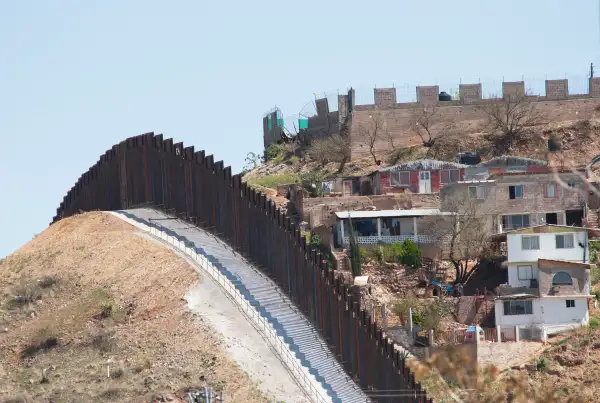The Wall Will Create Thousands of New Jobs. But There Could Be a Catch

Even after President Donald Trump’s executive order to begin construction of a border wall with Mexico, the actual plans are still the subject of speculation.
From how long the structure will be (1,000 to 2,000 miles), to the wall's budget ($12 billion to $15 billion, or even $25 billion), and who will end up paying for it (Mexico! Or maybe not), the new administration has plenty of details to iron out. But one certainty, experts say, is that if construction forges ahead as expected, it will create thousands of jobs for American workers.
Michael Montgomery, a consultant who helps developers estimate their projects' economic impact, says a building project on the scale of Trump’s speculative wall should create between 21,200 and 25,600 jobs for "at least the period of construction,” basing his estimate on the $12 billion to $15 billion budget mentioned by Senate majority leader Mitch McConnell.
Those won’t necessarily be new jobs -- already-employed construction and manufacturing employees will inevitably take some of the work, he says. But the positions, which include everything from the manufacturers making its materials to the cooks feeding the workforce, would be “substantially if not entirely supported” by that existing GOP budget estimate.
There’s one caveat, though. The U.S. is currently in the midst of a construction labor shortage as housing developers work to bring supply back in line with demand. That will make it difficult to fill those job with legal labor, says Juli Smith, president of the engineering and architecture executive search firm Smith Consulting group.
Without a documented workforce available, construction supervisors will be forced to use low-paid, "undocumented immigrant workers," Smith says.
There are other potential ways Trump's anti-immigration efforts could generate more jobs; Trump has announced plans to boost the border patrol, for instance. But the salaries of border patrol agents and customs officers are already one of the highest-priced line items on the Department of Homeland Security’s budget, so such an increase would fly in the face of his long-held promise to massively cut government spending (and, in turn, the federal workforce).
Of course, if Trump convinces the Mexican government to pay for the wall, goading the country to use its own labor and materials to build it, the whole jobs stimulus would benefit workers on the south side of the border. But don't hold your breath waiting for Mexican President Enrique Peña Nieto to bow to Trump’s demands, says Michael Camuñez, president and CEO at ManattJones Global Strategies, and a former assistant secretary of Commerce under President Barack Obama.
“Mexico is not going to pay for that wall, and Mexicans are not going to build it,” Camuñez says. “That would be the equivalent of asking an East Berliner to willingly construct the wall that cuts them off from the world. It’s outrageous.”
